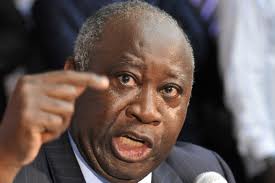Ivoirian Prime Minister, Guillaume Soro, made it clear yesterday on French cable news channel France 24 that civil war in Cote d’Ivoire seems almost unavoidable unless the international community takes urgent steps to reverse the Gbagbo’s power grab. On Friday, the West African leaders met in Nigeria to discuss what to do if the country’s beleaguered president Laurent Gbagbo continues to defy the election results while refusing to relinquish power. It looks like the ceasefire that ended the war back in 2007 only managed to silence the guns, but the hatred and the aim that started it in the first place remains very much intact.
More than 200 people have already been killed in the aftermath of the election. The western countries and the African states are now raising the stake, heaping political and financial pressure on Gbagbo to step down. Election results showed that Gbagbo lost by 8 percentage points to rival Alassane Ouattara now the recognized Head of State. “At this meeting (heads of state) will be deciding what more we can do to help the situation in the Ivory Coast,” a spokesman for West African regional bloc ECOWAS told Reuters as the meeting started in the Nigerian capital Abuja.
ECOWAS poised to militarily intervene
Late this afternoon, a joint declaration by ECOWAS made it clear that using force will be necessary to dislodge Gbagbo. Newspapers in Ivory Coast’s main city Abidjan on Thursday speculated the regional body would consider sending an intervention force after a top Ouattara aide said force was the “only solution” to oust Gbagbo. Dr. Amadou Diouf of Senegalese origin, a professor at Columbia University in New York, asserted that the ECOWAS decision falls in line with what had previously done in the region. “It was done in Guinea Bissau, in Liberia and in Sierra Leone,” he said.
The European Union and the US have already imposed travel sanctions on Gbagbo and his inner circle while the World Bank and the West African central bank have cut off his funding in an attempt to pressure him to step down. This afternoon, it was reported that only Ouatarra and his government-in-waiting is authorized to borrow money from the World Bank and other lending institutions.
Gbagbo will definitely face a cash trap. The said strategy is designed to make it harder for him to continue to pay wages to soldiers who support him. Ministers from the Central Bank of the West African Economic and Monetary Union said late on Thursday that the bank would no longer recognize Gbagbo’s authority as president, and that access to funds would only be given to Ouattara’s “legitimate government.”
This latest political move follows a World Bank decision on Wednesday to freeze some $800 million in committed financing, adding to speculations that Gbagbo may soon struggle to pay wages—including to troops. Military support for Gbagbo is seen as one of the main reasons he is able to defy calls to step down. Ouatarra, a former Worl Bank regional president, is using his clout to force Gbagbo to yield.
Reports from mercantile markets worldwide confirmed that Ivory Coast’s $2.3 billion bond due 2032 fell to a record low on Thursday as investors worried that the country would be unable to meet a $30 million bond payment on December 31. Adding to that is the speculation that fighting could block transport and shipping, should war break out, sparking turmoil in the world’s top cocoa-producing country. This has also boosted cocoa prices to new highs.
Can Laurent Gbagbo defy the odds?
Squeezed on all sides, Gbagbo remains defiant. He has shown no sign of caving and has insisted he won the election after the Constitutional Court, which is headed by one of his allies, threw out hundreds of thousands of votes from pro-Ouattara constituencies.
The standoff turned violent last week after gun battles broke out briefly between government soldiers loyal to Gbagbo and rebels who now back Ouattara.
Charles Ble Goude, leader of the powerful pro-Gbagbo’s Jeune Patriotes (young patriots) movement, warned that sending a military force could lead to renewed war in Ivory Coast, still divided from a 2002-03 civil war. “In a union such as ECOWAS, when one country is in difficulties, you don’t come and start a war in that country, but try to help find a solution. I don’t know what would be the objective of an intervention force. Kill Ivorians?” Ble Goude said on Radio France Internationale.
Another blow for Gabgbo was the unanimous decision taken by the 192-nation U.N. General Assembly on Thursady, recognizing Ouattara and his government as the sole official representatives of Ivory Coast at the United Nations. This move further isolates Gbagbo.
Ble Goude—the mastermind behind the ethnic hatred—has called for a massive demonstration next Wednesday, and the northern half of the country still militarily controlled by the rebels is firmly behind Ouatarra. One wonders, how long can Gbagbo play this game? He didn’t learn from Rwanda in 1995.


